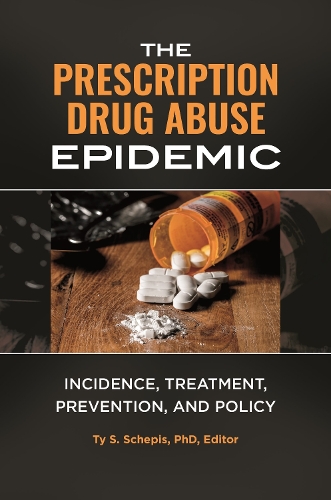
The Prescription Drug Abuse Epidemic: Incidence, Treatment, Prevention, and Policy
(Hardback)
Publishing Details
The Prescription Drug Abuse Epidemic: Incidence, Treatment, Prevention, and Policy
By (Author) Ty S. Schepis Ph.D.
Bloomsbury Publishing PLC
Praeger Publishers Inc
21st June 2018
United States
Classifications
Tertiary Education
Non Fiction
Popular medicine and health
Psychology
362.29/90973
Physical Properties
Hardback
336
Width 156mm, Height 235mm
624g
Description
This overview of prescription drug abuse includes historical background, key concepts, and discussion of the prevalence of drug abuse, treatments, and policy issues implicated in ending the epidemic. Prescription opioid medication abuse has been declared a national crisis by experts in medicine, substance use, public health, and pain management, culminating in a declaration made by the President of the United States that opioid misuse and abuse is a national health emergency. In this comprehensive text, expert scholars analyze and address a wide range of issues in, obstacles to, and potential solutions for this emergency, which caused more than 50,000 deaths in 2016 alone. It covers a variety of topics related to prescription misuse from both clinical and academic perspectives. After an opening containing background material on the most commonly misused medications, chapters examine subgroups engaged in misuse and special medical environments where misuse issues are key. They then cover U.S. policy, perspectives outside the U.S., and theories that may explain the misuse phenomena. This book will serve as a resource for students and professionals in fields related to prescription drug abuseincluding psychology, sociology, medicine, and public policyand is accessible to individuals not trained in these fields.
Reviews
This text is appropriate for inclusion in libraries serving students in health, substance abuse, and criminal justice, particularly those seeking to promote interdisciplinary collaboration. . . Summing Up: Recommended. Advanced undergraduates through faculty and professionals. * Choice *
Author Bio
Ty S. Schepis, PhD, is associate professor of psychology at Texas State University. He has been principal investigator on over $1 million in research grants from the National Institute on Drug Abuse.
